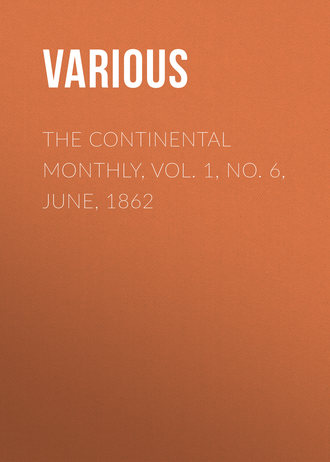The Continental Monthly, Vol. 1, No. 6, June, 1862
 полная версия
полная версияThe Continental Monthly, Vol. 1, No. 6, June, 1862
Жанр: учебная и научная литературазарубежная старинная литературазарубежная образовательная литератураполитологиялитературоведениезнания и навыки
Язык: Английский
Год издания: 2018
Добавлена:
Настройки чтения
Размер шрифта
Высота строк
Поля









